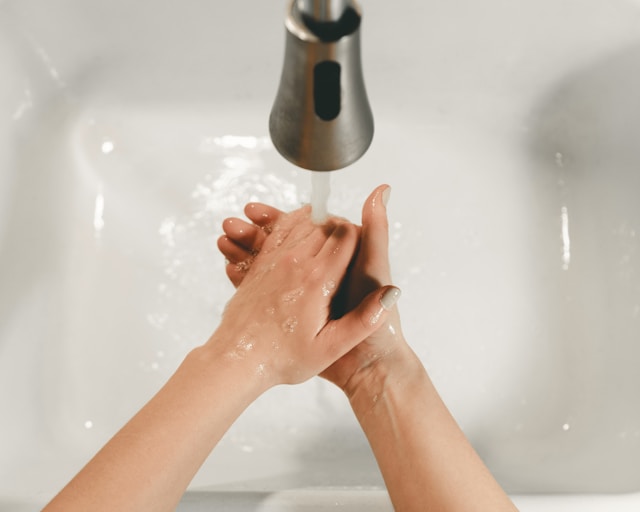Source: Unsplash (CC0)
A water bill that slowly gets higher each month can be frustrating, especially when nothing about your daily routine seems to have changed. You might be taking the same length of showers, running the dishwasher just once a day, and washing clothes like you always do. But the numbers keep climbing, and it’s hard to figure out why.
The truth is, rising water bills can sneak up on anyone because the causes often start small and stay hidden. Tiny leaks, outdated fixtures, or simple habits can all make a big difference over time. The good news is that once you know where to look, there are a bunch of easy ways to take control and bring those costs back down.
Look for hidden leaks inside and outside
Leaks are one of the most common reasons for a higher water bill, and the tricky part is that many of them aren’t easy to see. A small drip under a sink or a slow toilet leak might not seem like much at first, but those tiny amounts add up fast over weeks and months.
That’s why it helps to use water leak detection tools or have a plumber check for problems behind the walls or underground. These tools can spot leaks you wouldn’t notice on your own, especially around old pipes or worn-out fixtures.
Watch out for running toilets
Toilets that run non-stop or cycle every few minutes might sound harmless, but they can waste gallons of water every single day. You might not think much of it at first, especially if the sound is faint or doesn’t happen all the time. But even a worn-out rubber flapper or a stuck float can make a big impact on your water bill.
Lift the tank lid and listen for hissing or running water. If anything sounds off or keeps moving long after you flush, it’s time for a quick repair that could save a lot of money over time.
Fix dripping faucets and showerheads
A dripping faucet might just seem like a minor annoyance, especially if it’s only a drop every few seconds. But over time, even small drips can waste gallons of water. That means you’re paying for water that you’re not even using.
Replacing old washers or sealing up loose connections is usually an easy fix that doesn’t take long. It’s a small project with a big reward, especially when you see your next water bill start to drop.
Upgrade old fixtures
Older faucets, toilets, and showerheads use more water than newer models that are designed to be more efficient. If your home hasn’t had any updates in a while, your bathroom and kitchen might be using more water than needed for everyday tasks.
A new bathroom makeover doesn’t just change the look of your space. It also gives you the chance to add low-flow showerheads and water-saving toilets that help cut down on waste while still doing the job right.
Check your water habits
Sometimes it’s not about leaks or old parts. It can just come down to habits that slowly use more water than expected. Leaving the tap running while brushing your teeth, overwatering the lawn, or doing half-full loads of laundry can all push your water bill higher.
Try timing showers, turning off the tap when not in use, and only running dishwashers and washing machines with full loads. These small changes don’t seem like much, but together they can really make a difference.
Take a walk around the yard
Outdoor leaks often go unnoticed because the water disappears into the ground. A hose that drips, a broken sprinkler head, or a hidden pipe leak in the yard can quietly waste water day after day. You might only notice if you see a soggy spot in the grass or a big jump in your bill.
Walk around the yard every so often and check connections, especially near sprinkler systems or outdoor faucets. Replacing a washer or tightening a loose connection outside is just as important as fixing indoor problems.
Keep track of your bill
Sometimes the best clue is the bill itself. If you see sudden spikes or a steady climb that doesn’t match your usual usage, that’s a sign something might be wrong. Compare the last few months and look for patterns that stand out.
If you spot something unusual, it’s worth taking a closer look at your home or calling someone who can. Catching the problem early can save you from paying even more later on.










